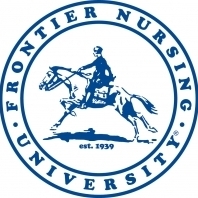-
Frontier Nursing University (Trusted Brand)
Advanced practice registered nurses (APRNs), such as nurse practitioners and nurse-midwives, play a vital role in expanding access to healthcare. Becoming an APRN is a natural step for nurses looking to grow in their profession with leadership opportunities and specialized training.
Nurses have many options available to them when pursuing advanced degrees like a Master of Science in Nursing (MSN), Post-Graduate Certificate (PGC), or Doctor of Nursing Practice (DNP). Nurses who want a broad scope, flexibility and variety may consider a number of different nurse practitioner specialties, while others may feel called to focused specialties like nurse-midwifery. It is important to understand the distinct role and focus of each path to make an informed decision.
According to the American Association of Nurse Practitioners (AANP), nurse practitioners evaluate patients, diagnose, write prescriptions and bring a comprehensive perspective to health care in nearly 1 billion patient visits each year, providing high-quality care across a wide range of specialties. The NP profession is trending to be the fastest-growing profession over the next decade due to 102 million people now living in primary care shortage areas, according to the AANP.
The need for nurse-midwives is also growing. Nurse-midwives are primary health care providers to women of all ages throughout their lives. With more than 3.7 million live births each year, the United States has approximately four midwives employed per 1,000 live births according to the American College of Nurse-Midwives. An estimated 22,000 midwives are needed to meet the World Health Organization's minimum goal of six midwives per 1,000 live births.
Three popular specialties that play a key role in addressing these provider gaps and expanding access to care include Family Nurse Practitioner (FNP), Women's Health Care Nurse Practitioner (WHNP) and Certified Nurse-Midwife (CNM).
Family Nurse Practitioner
An FNP is an advanced practice nurse who manages the healthcare of individuals and their families by providing preventive and primary care, promoting health and wellbeing, and helping patients manage chronic conditions. FNPs conduct routine checkups and assessments, order and interpret tests, make diagnoses, prescribe medications, and initiate and manage treatment plans for their patients.
The FNP curriculum prepares clinicians for a broad scope of practice as they will be managing the healthcare of individuals and families across the lifespan. FNP programs often blend core courses on population-focused primary care, pathophysiology and pharmacology with leadership training.
Women's Health Care Nurse Practitioner
A WHNP is an advanced practice nurse who specializes in continuing and comprehensive health care for women throughout their lives as well as providing sexual and reproductive healthcare to people of all genders. WHNPs provide well-woman care, reproductive and gynecological care, and prenatal and postpartum care. Additionally, WHNPs focus on health promotion and disease prevention.
WHNPs learn a diverse set of clinical, diagnostic, and therapeutic skills that prepare them to provide expert care to women in a variety of healthcare settings, including primary care, reproductive health, and maternal health. This broad skill set ensures that WHNP graduates are versatile and adaptable in the ever-evolving field of sexual and reproductive healthcare.
Certified Nurse-Midwife
Certified nurse-midwives are APRNs focused on gynecologic and family planning services, as well as preconception, pregnancy, childbirth, postpartum and newborn care. They also provide primary care such as conducting annual exams, writing prescriptions, and offering basic nutrition counseling. Certified Nurse-Midwives are educated in both midwifery and nursing.
What to Consider When Selecting an APRN Program
Nurses who have completed a Bachelor of Science in Nursing can typically complete an advanced nursing degree in two to three years. Nurses looking to fit a master's or doctoral degree into already busy schedules may benefit from part-time, hybrid or distance education programs. Some schools also offer support in finding preceptors and clinical sites, which can be one of the most challenging requirements of an APRN program.
Ultimately, the choice between FNP, WHNP and CNM depends on your unique values, interests and career goals. While all three specialties combine didactic and clinical learning, they differ in focus, curriculum, program length, clinical training and certification requirements. Exploring your passions and researching which program best fits your lifestyle will help ensure you're on the right path.
Request information about nurse-midwifery, family nurse practitioner, and women's health care nurse practitioner programs.
Learn More About Frontier Nursing University
The mission of Frontier Nursing University is to provide accessible nurse-midwifery and nurse practitioner education that integrates the principles of diversity, equity, and inclusion. We transform healthcare by preparing innovative, ethical, compassionate, and entrepreneurial leaders to work with all people with an emphasis on rural and underserved communities. FNU offers graduate Nurse-Midwifery and Nurse-Practitioner distance education programs that can be pursued full- or part-time, with the student's home community serving as the classroom. Degrees and options offered include Doctor of Nursing Practice (DNP), Master of Science in Nursing (MSN), or Post-Graduate Certificates. Frontier has been named a "Great College to Work For" by the Great Colleges to Work For® program for each of the past three years (2021-2023). To learn more about FNU and the programs and degrees offered, please visit Frontier.edu.
This is a sponsored article brought to you by allnurses.com in partnership with the advertiser. The views expressed in this article are those of the advertiser and do not necessarily reflect allnurses.com, its parent company, or its staff.


